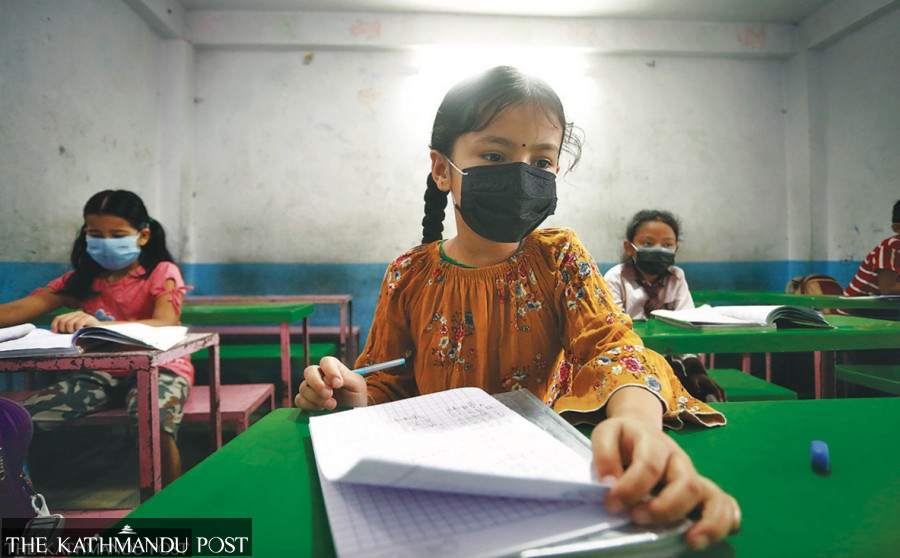National
School question papers prepared by local governments are full of errors
Experts hold the federal government equally responsible.
Binod Ghimire
Last week a question paper of Social Studies for grade five drew widespread ridicule on social media as the English translations of all the questions were bad and full of errors. The question paper was prepared by Bansgadhi Municipality, Bardiya for the students from both private and public schools at the local unit.
Not just the English translation, some of the questions in Nepali itself were grammatically incorrect. The question paper of Moral Studies for grade eight final examinations at Chaunri Deurali Rural Municipality in Kavrepalanchok is no different. Not a single question is correctly translated into English from Nepali.
There is a similar instance from Mithila Municipality in Dhanusha. Most questions meant for the final examination of science for the seventh graders within the municipality ask the students to fill in the blanks instead of answering explanatory questions.
The local units are overseeing the basic school education as authorised by the Constitution of Nepal. The statute says school education up to grade 12 falls under the jurisdiction of local governments. The Local Government Operation Act-2015 says the local government can conduct and monitor the examinations up to grade 8.
Most local governments have started conducting integrated tests for students from grade five to eight for the last few years. However, the question papers prepared by some of the local governments have raised questions about the quality of examinations they are conducting.
“We have received information about errors in question papers and this has raised questions about the quality of the examinations,” Dilli Luitel, spokesperson at the Centre of Human Education and Human Resource Development, told the Post. “We are planning to draw the attention of the local governments concerned to improve the quality and conduct of examinations.”
The federal government has its subordinate offices in all districts to facilitate coordination between the local and federal governments. However, these offices have done little to enhance the capacity of local governments to conduct examinations.
The erstwhile District Education Offices, which are now called education units, have long experience in conducting district-level examinations for grade 8 and pre-qualification tests for the School Level Examinations (Secondary Education Examinations).
Luitel said as the Act clearly says local governments have the authority to conduct examinations up to grade eight, the education unit cannot intervene. However, he said the local units can monitor the examinations.
Education experts say that many local governments are conducting school examinations effectively though there are problems in some. “While the federal and provincial governments have made little efforts to empower local governments, the local governments themselves haven’t paid much attention to investing in education,” Binay Kusiyait, a professor at the Tribhuvan University, told the Post. “They are investing more on infrastructure than on education.”
Experts say local governments must understand that real development is not possible without uplifting the quality of education. They say the federal government must come up with a federal education act clearly outlining the responsibilities of the different tiers of government to make each of them accountable to their roles.
Though the constitution envisions a Federal Education Act, the federal government has not prepared its draft yet creating confusions over the responsibilities between various government units.
“I blame indifference of the federal government for the present education-related problems at the local level,” Kusiyait said.




 8.79°C Kathmandu
8.79°C Kathmandu















